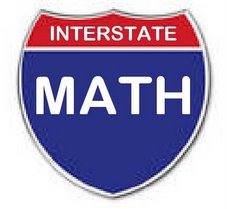January 30, 2007
To the National Mathematics Advisory Panel's Teacher Task Group:
After reading the Teachers and the Professional Education of Teachers Task Group report from your January 10-11 meeting, we felt the need to write you. We applaud that you are looking at the relationship between teachers mathematics knowledge and student achievement and that you are looking at models for "mathematics specialists" at the elementary (K-5) level.
A number of state and national reports focused on improving student learning in mathematics and strengthening teachers' understanding of mathematical concepts and instructional pedagogy, have begun to call for the placement of mathematics specialists in public schools. These reports (Adding It Up: Helping Children Learn Mathematics, 2001; Keys to Math Success: A Report from the Maryland Mathematics Commission, 2001; National Council of Teachers of Mathematics Principles and Standards of School Mathematics, 2000; National Mathematics Advisory Panel: A Report from the National Center for Learning Disabilities, 2006; The Mathematical Education of Teachers, 2001) have converged around a common idea.
Each report calls for a mathematics specialist to be placed in schools as a resource for providing ongoing professional development, teaching, curriculum development, assessment, and parent and community education to improve the teaching, learning, and assessment process. The National Council of Teachers of Mathematics Principles and Standards for School Mathematics (2000) states, "There is an urgent and growing need for mathematics teacher-leaders--specialists positioned between classroom teachers and administrators who can assist with the improvement of mathematics education (375)."
We agree there is a need for mathematics specialists, however we believe there is a clear need for them at all grade levels/bands (K-5, 6-8, and 9-12).
As Maryland mathematics leaders who work with state and local school district K-12 mathematics teachers, we believe that there are close relationships between mathematics content knowledge, the use of effective pedagogy, and increased student achievement. However, in reviewing data from the mathematics portion of the 2005 National Assessment of Educational Progress (NAEP), as well as standardized assessment data from individual U.S. states, a clear trend exists. Standardized test scores drop dramatically when students enter the middle school grades (6-8), and then gradually, but slowly, begin to "recover" as students progress through the high school years. There is a sufficient need for mathematics specialists to receive focused training on state of the art practices in exemplary mathematics instruction, research on student learning, providing professional development that leads to positive change, and strategies for teaching and mentoring others.
When observing K-12 mathematics teachers one can usually separate them into two categories: those who have pedagogical knowledge, but lack mathematical content knowledge; and those who have mathematical content knowledge, but lack pedagogical knowledge. While elementary and middle school teachers generally fall into the first category, many high school teachers fall into the second category.
Elementary and middle school mathematics teachers often enter teaching with a wealth of pedagogical knowledge but only a small amount of mathematical content knowledge. Most pre-service K-8 programs give teachers training on numerous instructional techniques while only touching on mathematics content beyond the elementary and middle grades level. Mathematics specialists in grades K-8 would help elementary and middle school mathematics teachers develop deep understanding of the connections between the mathematical topics that they teach in their grade levels and the future mathematics topics that their students will learn.
High school mathematics teachers enter teaching with a great deal of mathematical content knowledge but with very limited pedagogical knowledge. Most secondary mathematics pre-service programs include only one or two methods of instruction courses for teacher-candidates seeking to teach high school mathematics. Teacher-candidates are coming out of these programs with an excellent understanding of mathematics, the connection between the mathematics they will teach, and future mathematics topics the students will learn. But they lack the knowledge of how to best impart the mathematics knowledge to their students. High school teachers need "mathematics specialists" who can help them attain this pedagogical knowledge. Mathematics specialists for grades 9-12 would not only be able to fill any content gaps teachers may have, they would be able to train high school mathematics teachers on best practices in secondary mathematics instruction, connections to STEM related fields, and assist in building (and retaining) a professional learning community amongst mathematics teachers.
Our school district was Maryland's first to respond to the call for mathematics specialists over 6 years ago when we placed five school-based specialists in our lowest performing elementary schools. To date, there are twelve elementary, six middle, and three high school mathematics specialists in twenty-four of our sixty nine schools. Based on the continued need (and success of these individuals) at each level, we have requested local funding for one more mathematics specialist in a middle school and three more in high schools for next school year.
We agree that "mathematics specialists" are needed to develop and retain a qualified, creative, effective mathematics teaching force. We urge that you use this vital opportunity to consider widening your scope of recommendations to include "mathematics specialists" at all grade levels/bands. We believe that all mathematics teachers need to be experts in mathematics content knowledge and mathematics pedagogy, and that "mathematics specialists" are the most effective way to make this happen.
Thank you for considering these important facts as you finalize your task group's recommendations.
Sincerely,
Kay B. Sammons
Coordinator, Elementary (K-5) Mathematics
Howard County Public Schools
Ellicott City, Maryland
B. Scott Ruehl
Coordinator, Secondary (6-12) Mathematics
Howard County Public Schools
Ellicott City, Maryland
Jonathan A. Wray
President-Elect, Maryland Council of Teachers of Mathematics
Secondary (6-12) Mathematics Instructional Facilitator
Howard County Public Schools
Ellicott City, Maryland
Wednesday, January 31, 2007
Subscribe to:
Post Comments (Atom)


No comments:
Post a Comment